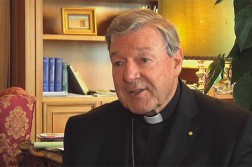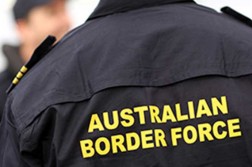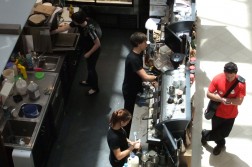Discretion is the better part of valour.
I had often heard this phrase, but I had never truly understood it. Until this week, when two important things happened: I bought a pocket dictionary; and Kevin Rudd announced his new-look emissions reduction scheme.
And now the truth of those words is resonating with me like nothing has ever resonated before.
Because our great and cautious leader, of course, has proclaimed that Australia’s emissions trading scheme, rather than beginning in 2010, will kick off in 2011. Rather than going off half-cocked like an over-eager young salmon leaping imprudently into the arms of the pollution-reduction bear, Rudd has decided that we should hang back, like a wise old cod, waiting to see which way the river flows before letting loose our carbon permit spawn.
There has been a little controversy about this move. "Why wait?" cry the conservationists, in between bucket bongs. "The planet needs action right now!" screech the Greens, in their typical hasty, fast-forward, act-now-think-later, economic-annihilation-while-u-wait way. There’s no doubt a Green, in the proper context, can be adorable; but equally there is no doubt that the proper context is a muzzle and a tranquilliser gun.
Because the fact is that in deciding to hold off — to wait and see how the situation unfolds, how the rest of the world acts, how the next election goes — Rudd has been displaying exactly the sense of considered hesitancy we should be demanding from our leaders. Nothing good ever came from rushing into things.
Let us look at an example from history. In 1933 the Nazis took power in Germany, beginning a chain of events that had enormous and tragic consequences for the whole world. Now, did the world powers of the time step in immediately, rush in all hasty and hot-headed before thinking things through? No, they waited six (or as the Americans say, "eight") years before finally taking thoughtful and well-considered action, and let us be thankful that they did. For if the Allies had acted in haste in the 1930s, we may have lost one of the most powerful tools in the modern political analysts’ armoury: the inappropriately overblown Nazi analogy. Imagine a world without World War II: terrifying, isn’t it?
Now, imagine that climate change is Hitler, and Rudd is Franklin Roosevelt. Immediately we see the possibilities of Rudd in a wheelchair, and the hope that if we wait long enough, climate change may shoot itself in the head. More importantly, we see the importance of time. Give it time, that’s the policy that should be followed in these tricky situations.
Just as you wouldn’t storm the beaches of Normandy naked and with crusty eyes, you can’t fix climate change by blundering into a half-baked, slapdash emissions trading scheme. We need to get this right — we may only get one chance to take decisive action to rescue our climate, and if we botch it, we will never have the satisfaction of knowing we did our best when China tells us to go to hell and the seawater begins lapping around our knees. Isn’t it worth waiting an extra year for that smug sense of self-satisfaction that comes with the certainty that your utter failure to change the world was not your fault?
China, of course, is key to the whole issue. The Rudd Government has not only delayed the start of the ETS, it has decreed that deep cuts to our emissions are dependent on reaching a global agreement at the Copenhagen summit later this year.
Once again, we see the wisdom of wait-and-see. Why should we act before we know whether China will, whether India will, whether all those other dirtbag countries will? Oh, some say Australia should "set an example", but they neglect one very important fact: to set an example, people have to pay attention to you. And if Baz Luhrmann has taught us anything, it’s that nobody pays attention to Australia. Most other countries don’t even know where Australia is. Barack Obama still thinks Kevin Rudd was a special-needs child who won a colouring contest. When we go to Copenhagen we’ll be lucky if we don’t spend the whole time serving canapés to the important countries, never mind trying to "set an example".
So it’s best to wait. And in waiting, Kevin Rudd has followed the example of all of Australia’s greatest leaders. Robert Menzies waited 10 years after first becoming prime minister before deciding to form the Liberal Party, and over a hundred years before retiring. Bob Hawke waited until he was out of office to leave his wife. Mark Latham waited until losing the election before going off his medication. John Howard waited until it was clear that nobody wanted him to be prime minister anymore before he decided to keep being prime minister for a bit longer. Waiting has been a major part of Australia’s history, from Aborigines waiting for an apology, to white people waiting for Aborigines to go away.
Which brings us rather neatly back to climate change, which still might go away if we wait long enough. Indeed, peer-reviewed studies from eminent News Ltd climatologists suggest that in fact the Earth is cooling, and if it isn’t, it isn’t our fault, and if it is our fault, nothing can be done anyway, and if something can be done, it shouldn’t because it’s nicer to be warm.
Professor Ian Plimer has recently written a book demonstrating that humans cannot cause climate change no matter how hard we try. So shouldn’t we try a lot harder and see if he’s right before taking further action? Plimer points out that we ignore geology in climate change calculations. "When plate tectonics ceases and the world runs out of new rocks, there will be a tipping point and irreversible climate change," he says.
Shouldn’t we at least wait until then before making up our minds?
In the end, waiting is the only reasonable course of action. A cautious country is a sensible country. Because when calamity threatens and disaster knocks on our door, all that is necessary for evil to triumph is for good men to listen to Bob Brown.
Donate To New Matilda
New Matilda is a small, independent media outlet. We survive through reader contributions, and never losing a lawsuit. If you got something from this article, giving something back helps us to continue speaking truth to power. Every little bit counts.



